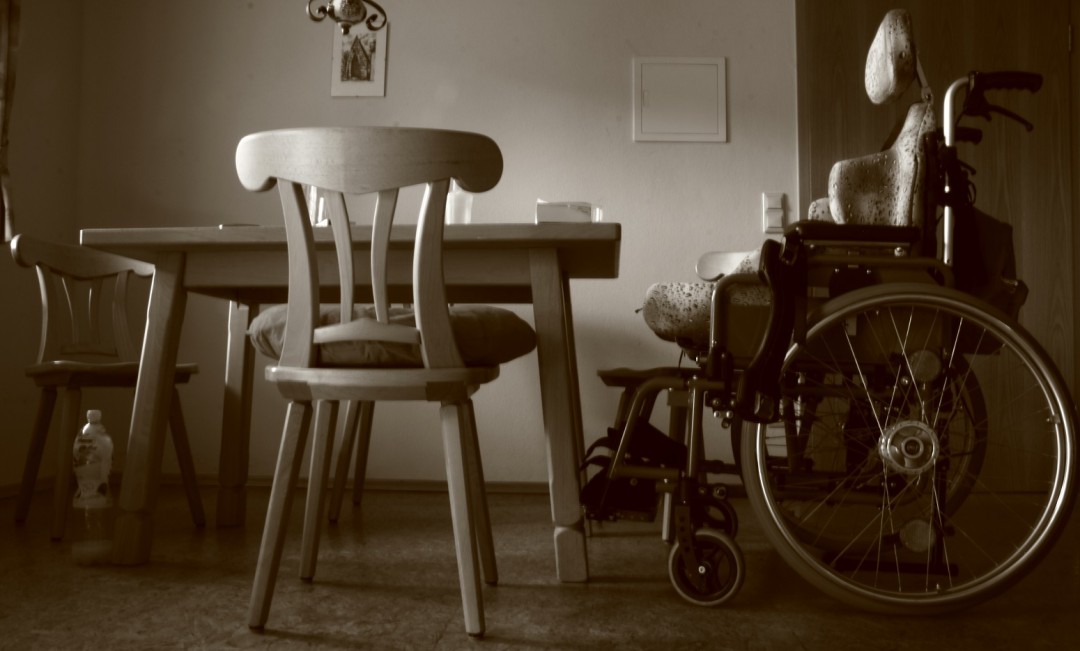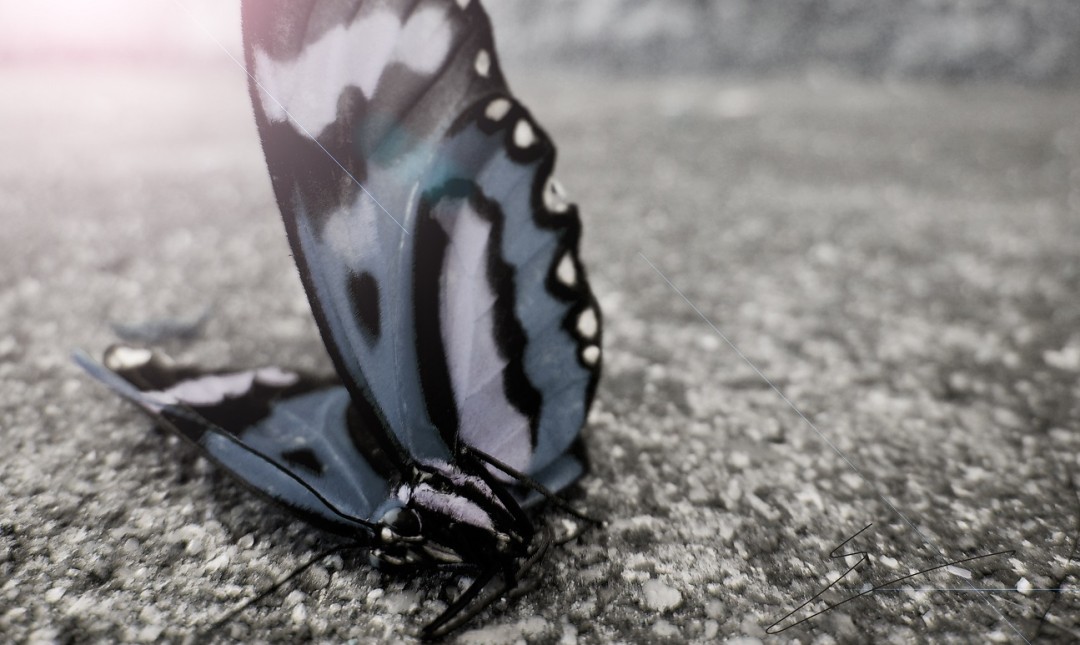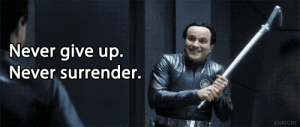When I was at Pensacola Christian College we only had ten minutes between classes, which made crossing campus and getting to class on time a challenge. Complicating that was the fact you couldn’t just use the stairwell or elevator closest to you. You had to use the elevator or stairwell assigned to your gender, which could be quite inconvenient. All of the above meant that taking an elevator to a second or third floor in a six- or ten-story building was … well “frowned upon” isn’t a strong enough term. It was a violation of a fairly strong social norm, and violators were punished.
I went along with the culture– talking smack about “those people” who took the elevator to the second floor, mostly– until, abruptly, I was one of “those people.” My dislocated hip took months of physical therapy before I could walk without crutches. Even after that, stairs continued to be beyond me. I took the elevator to the second floor.
I was physically accosted. Papers were knocked out of my hand, my messenger bag torn off my shoulder, books stolen. My dorm room was vandalized once (“take the stairs” written in magic marker on our door). For a while I didn’t realize that people weren’t just being assholes for no discernible reason: they were being assholes because I didn’t look sick. They couldn’t see an obvious reason for me to be taking the elevator– wheelchair, crutches, walker, an obvious muscular or skeletal condition– so I must just be lazy and selfish.
***
After a semester at Liberty of doing nothing but sitting at different versions of desks I decided that I needed to move more. When the weather was pleasant I went for walks around my neighborhood. When it wasn’t, I used an elliptical at the gym twice a week.
One evening, as I concentrated on keeping my hips and knees aligned and shoulders relaxed, someone flicked my arm with the tip of her finger. I pulled my earbuds out to hear her sneer “if you’re not going to exercise then you need to get off this thing and let someone on who’s actually going to use it.”
I stared at her, dumbfounded. I was exercising. I was using it. She stared back, arms crossed and hostile. It dawned on me that she saw someone moving “slowly” as selfishly taking up valuable space. What I saw as a valuable aide for moving in a low-impact way, she saw as a tool for a full-body fat-busting workout. I wasn’t doing pell-mell full-tilt cardio, so I was just being lazy.
Timidly, I told her I would be done in five minutes. I’d planned on another fifteen.
***
My first date with Handsome was the Cherry Blossom Festival. That afternoon we walked around the Basin, from the Lincoln to Jefferson Memorials, and finished up with a quick tour of the National Air and Space Museum. At the end of the day we took the Metro back to his car and I fought with myself to contain my sigh of relief at finally sitting. I dozed on his shoulder for the entire ride, and then covered up how stiff and sore I was for the rest of the evening. The next day when I had trouble moving around, Handsome noticed and asked what was wrong. I tried to laugh it off with “Oh, my feet hurt from so much walking around yesterday.”
He offered a foot rub– and I was shocked. I hadn’t expected him to respond with generosity and kindness. I accepted, but the entire time a deep and encompassing part of me tried to cringe away. I didn’t deserve this. After all, I was just lazy. If I cared to, I could “get in shape,” and then I wouldn’t be so sore after only walking a few miles.
***
I’d started to have what my mother has always referred to as Truck Days, as in “I was run over by one.” I would wake up in the morning and my first impulse would be to groan at the pain. But, life moves on, and one day I couldn’t afford not to run errands.
While I was out, I drove around the parking lots looking for open spots close to the door, and then I would hobble up to the door and around the store or post office or bank. At the grocery store, two men were outside smoking. I kept my gaze on the ground, watching my feet, and tuned out the street harassment. After a bit I realized it wasn’t ending with “hey sexy” like it usually would. They were still talking, obviously trying to get my attention.
“Hey baby, are you ok?”
“Yeah baby, do you need us to help you with something?”
I didn’t respond, tried not to react at all. They got louder, more aggressive, started following me. I couldn’t walk fast enough to get away from them. One tried to touch me. I jerked my arm away.
“Fine. Be like that, bitch. We were just trying to help.”
***
“Is it cold outside or something?” accompanied by a laugh.
I looked up from my earnest study of the different paint rollers naps and their various applications and benefits, jarred and confused at the interruption. “What?”
“Doesn’t seems like it’s cold enough outside to be bundled up like that.”
I looked down at my puffy coat and scarf, with my hat and gloves in my hand, my warm boots– protection against the muscle spasms that would come if I allowed my extremities to get too cold on this blustery 40-degree day. I met his eyes. “It’s cold enough for me,” I laughed like it was a joke.
After the sixth time someone poked fun at me for being “bundled up,” I wasn’t laughing. The next time I was getting ready to leave the house, I desperately wished for warm weather so people wouldn’t make fun of me.
***
Yesterday I took my first real step toward filling my New Year’s Resolution. In January I’d decided that I wasn’t going to care about being “in shape,” but I wanted to be able to walk again. Over the last year I’ve spiraled down to the point where walking further than a mile can leave me unable to move for a day or more. I want to stop this in its tracks and get my body back to a place where I can go see the Smithsonian with friends or family. I’ve been officially– finally— diagnosed with fibromyalgia after fighting with doctors and specialists for the last year. I asked for a prescription for water-based physical therapy, and yesterday was my first day.
The entire time, the therapist kept encouraging me to only do the exercises at the pace and level that I felt comfortable. I did my best to heed her advice … but it didn’t stop the embarrassment I felt at moving through the exercises so slowly, so gingerly. Shame made me ignore the twinges in my hips and lower back. Last night, I needed to be carried upstairs and helped into bed while I tried not to sob from the pain.
It’s so hard to fight against the message that being “healthy” means hurt yourself, that people who really care about their health can “push through the pain” and “feel the burn” and hold to the old adage of “no pain no gain.” That my attempts to avoid pain really just make me lazy. Selfish. Worthy of public ridicule.
Being a person with an invisible illness, with chronic pain, means dealing with the shame society inflicts on you for not being “healthy.” It’s a shame you internalize because it’s so relentless, and takes on so many forms. Combined with the “sense of worthlessness” I already deal with because of my depression, it’s difficult to fight against my diagnosis making the depression worse. To fight to believe that being ill doesn’t make me a burden, that just because I’m sick in a way many people don’t understand it doesn’t mean I don’t contribute meaningfully to the world.
Before I was injured, before I got sick, I was one of those “many people.” I judged, I mocked. I thought that because I was accommodating to people with muscular dystrophy and did my best to interact with those in wheelchairs as if they were no different from anyone else that I was a nice person. I didn’t think about my sounds of disgust, my eyerolls, my condescension and judgment toward people that I saw as lazy. I didn’t think that one day it would be people tut-tutting me. I didn’t think I would be brutally awakened to just how horribly cruel I was because I thought seeing a person meant understanding their life.



